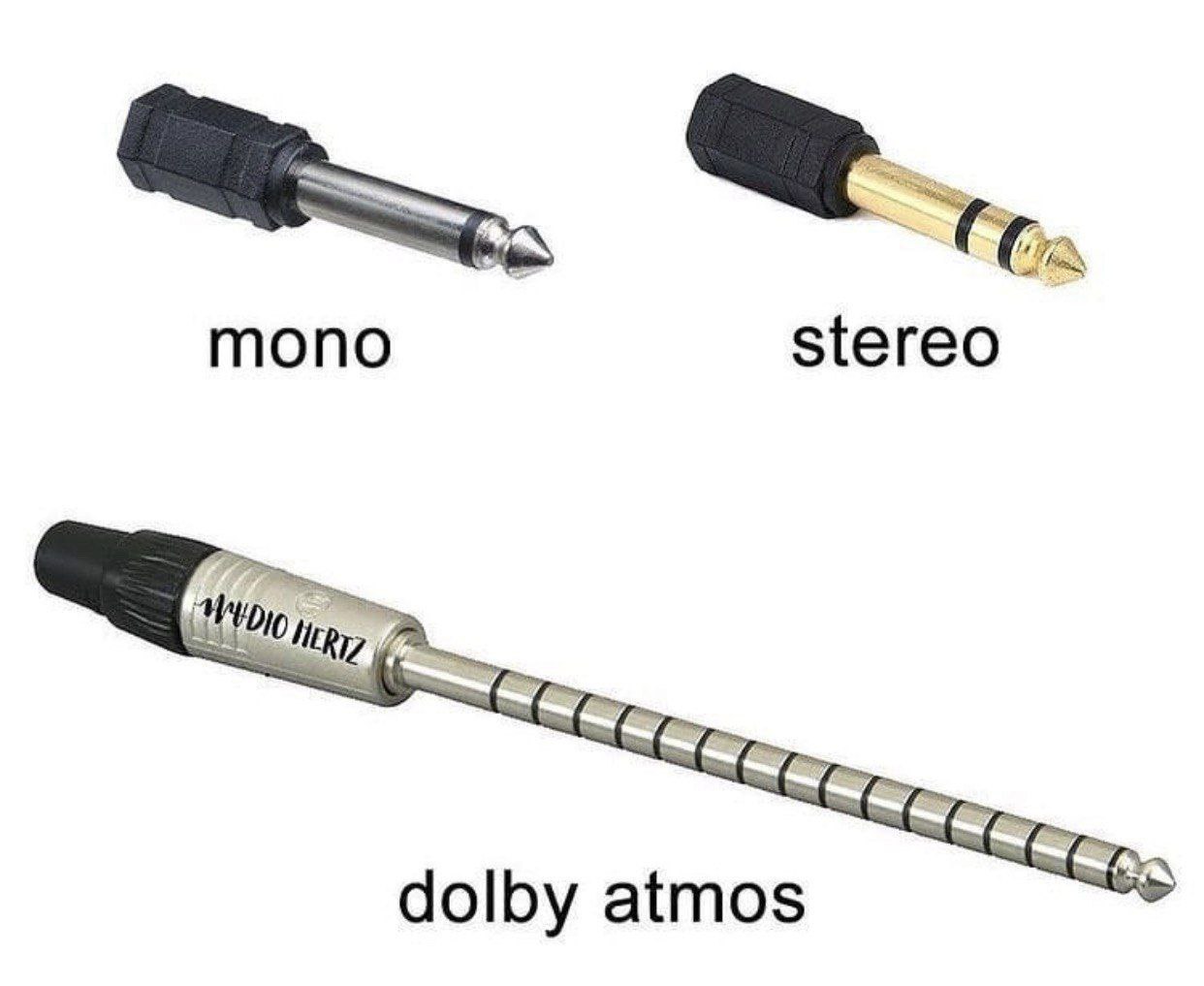this post was submitted on 14 Jun 2024
612 points (100.0% liked)
196
16576 readers
1856 users here now
Be sure to follow the rule before you head out.
Rule: You must post before you leave.
founded 1 year ago
MODERATORS
you are viewing a single comment's thread
view the rest of the comments
view the rest of the comments

The most complex Atmos system you can build is 24.1.10 so that’s 35 audio output channels. Sure the audio is packed on disc in 12-16 channels. But Atmos is object based, the Atmos receiver can calculate where the sound should play across those 35 output channels.
I was aware that there was algorithmic expansion that could be done, but I did think it was a maximum of 12 real channels (L, C, R, SL, SR, RL, RR, sub, 4x overheads)
What are the other 4? Do they add channels between the ear height and overheads?
It depends on the version of atmos.
Full fat cinema atmos can scale to (iirc) 512 channels. (Things may have changed since I last was involved!)
In that case, it's a 7.1 bed, and all the other channels are effectively coordinates in the room, and the processor steers objects between them in real time, rather than having defined tracks.
I think those are purely object based channels that a TrueHD receiver can’t use. So that’s for audio sources that will be added across the other channels and subtract where necessary to remove duplicate sounds.
https://www.dolby.com/about/support/guide/speaker-setup-guides/
In Atmos, channels going in doesn't necessarily align with channels coming out
Speaker setups are regarding channels going out, a jack like the one in the OP would be an input jack as no speaker would need more than two poles
Delete: not sure I'm actually adding anything with this